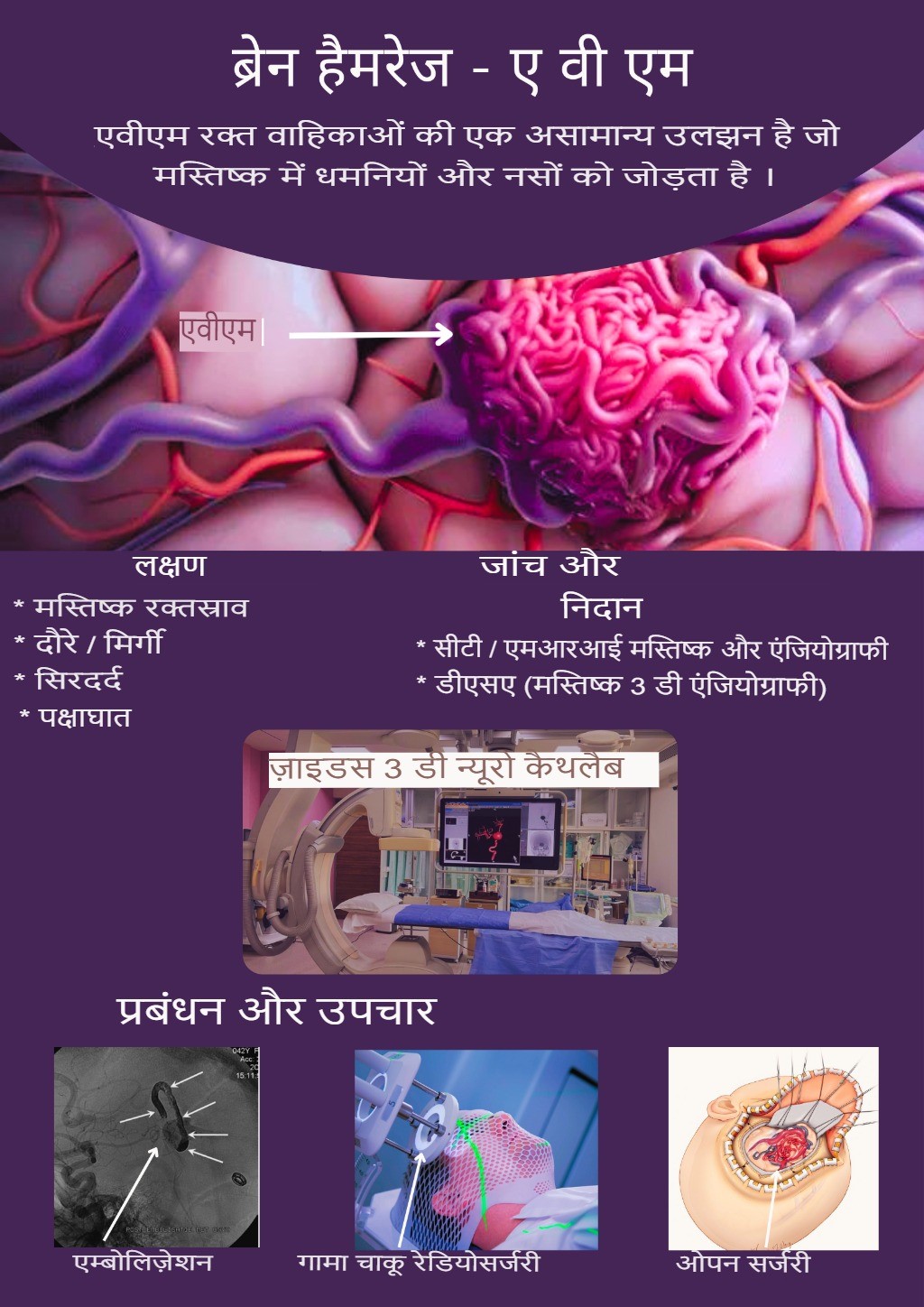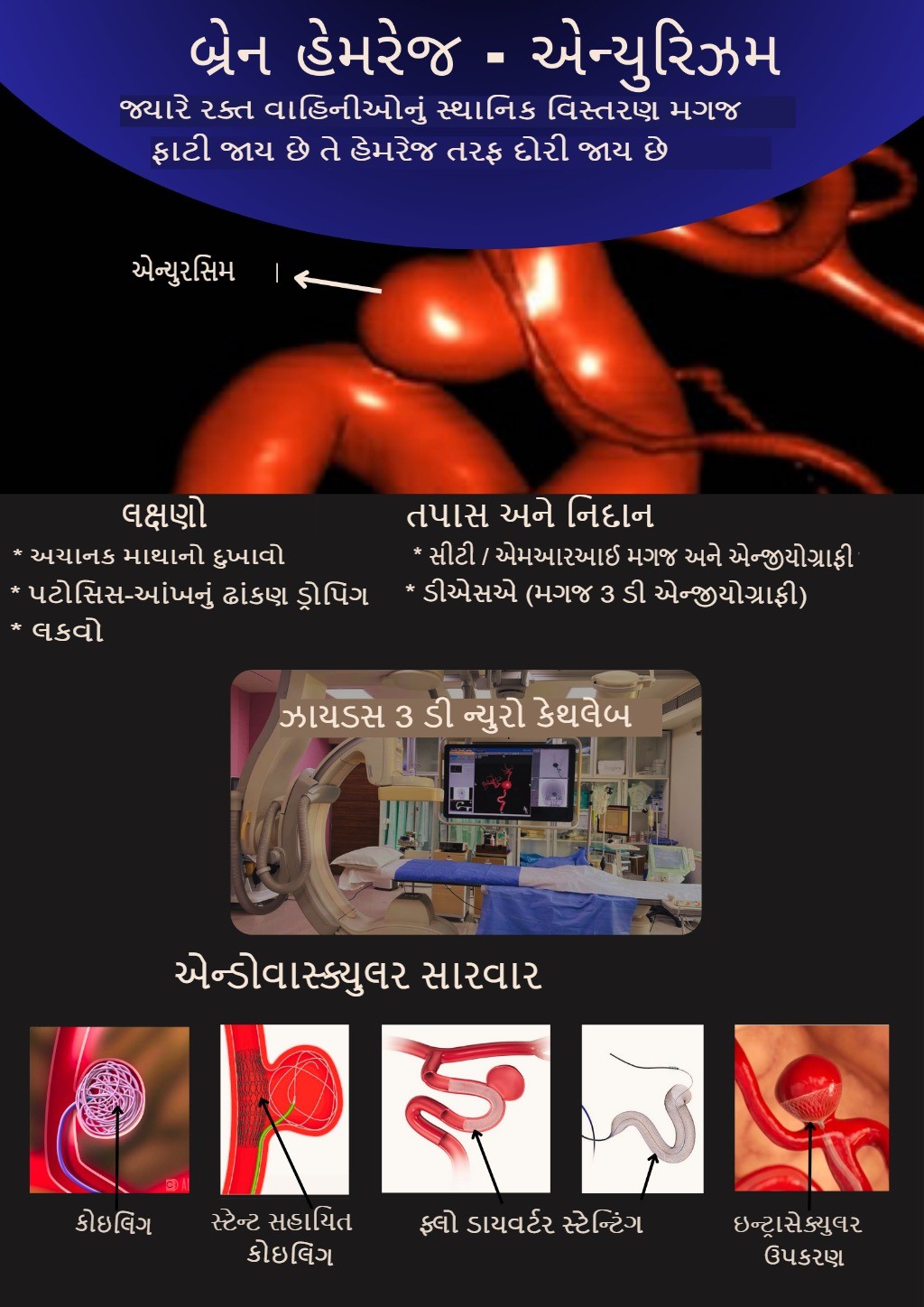Brain Hemorrhage Symptoms & Treatment
Brain Hemorrhage: Symptoms, Causes, and Diagnosis
Dr. Kalpesh Shah is a renowned neurologist specializing in brain disorders. Dr. Kalpesh Shah and his team of experts are dedicated to providing exceptional care for patients with brain disorders, including brain hemorrhage. With extensive experience and advanced diagnostic techniques, they ensure accurate diagnosis and effective treatment tailored to each patient’s needs.
Multidisciplinary Approach to Care
What is Brain Hemorrhage?
Brain hemorrhage, also known as cerebral hemorrhage or intracranial hemorrhage, refers to bleeding that occurs within the brain tissue or surrounding areas. It is a serious medical condition that requires immediate medical attention. The condition can result from various causes and may lead to potentially life-threatening complications if not treated promptly.
Here, we provide comprehensive information about brain hemorrhage, including its symptoms, causes, and diagnosis. Understanding these aspects can help you recognize the signs, seek timely medical attention, and receive appropriate treatment.

Symptoms of Brain Hemorrhage
- Sudden and severe headache.
- Nausea or vomiting.
- Weakness or numbness in the limbs.
- Difficulty speaking or understanding speech.
- Loss of balance or coordination.
- Vision changes or loss of vision.
- Seizures.
- Loss of consciousness or coma.
Causes of Brain Hemorrhage
- High blood pressure (hypertension): The most common cause of brain hemorrhage is uncontrolled high blood pressure, which weakens the blood vessel walls over time.
- Aneurysm: A weakened or bulging blood vessel can rupture, leading to bleeding within the brain.
- Traumatic brain injury: Severe head trauma, such as from a car accident or fall, can cause bleeding in the brain.
- Blood vessel abnormalities: Conditions such as arteriovenous malformation (AVM) or arteriovenous fistula (AVF) can increase the risk of brain hemorrhage.
- Blood-thinning medications: Certain medications that reduce blood clotting can increase the risk of bleeding within the brain.

Diagnosis of Brain Hemorrhage
- Medical history and physical examination: The doctor will ask questions about symptoms, medical history, and conduct a thorough neurological examination.
- Imaging tests: Imaging techniques such as computed tomography (CT) scan or magnetic resonance imaging (MRI) are used to visualize the brain and detect bleeding.
- Lumbar puncture: In some cases, a sample of cerebrospinal fluid may be collected through a lumbar puncture to rule out other causes of symptoms.
State-of-the-Art Diagnostic Techniques
Individualized Treatment Plans
- Medications: Depending on the circumstances, Dr. Shah may prescribe medications to manage blood pressure, reduce swelling, prevent seizures, or address other underlying conditions contributing to the hemorrhage.
- Minimally Invasive Interventions: In certain cases, Dr. Shah may recommend minimally invasive procedures to treat the underlying cause of the hemorrhage. These procedures may include endovascular coiling to repair an aneurysm or embolization to address abnormal blood vessels.
- Surgical Intervention: For severe or life-threatening cases, surgical intervention may be necessary. Dr. Shah collaborates closely with skilled neurosurgeons to perform procedures such as craniotomy, hematoma evacuation, or aneurysm clipping.
- Rehabilitation and Follow-up Care: Dr. Shah recognizes the importance of post-treatment care and rehabilitation to support patients' recovery. He works closely with rehabilitation specialists to create personalized rehabilitation plans that focus on physical therapy, speech therapy, and cognitive rehabilitation as needed.
Compassionate Patient Care
Dr. Kalpesh Shah and his team are committed to providing compassionate care to patients and their families. He understands the emotional and physical challenges that come with a brain hemorrhage diagnosis and ensures that patients feel supported throughout their treatment journey. Dr. Shah takes the time to address concerns, answer questions, and provide guidance, ensuring that patients and their loved ones feel empowered and informed.
If anyone in your social circle is experiencing symptoms suggestive of brain hemorrhage, contact Dr. Kalpesh Shah’s clinic immediately to schedule an appointment. Early intervention can make a significant difference in outcomes and improve the chances of a successful recovery.
